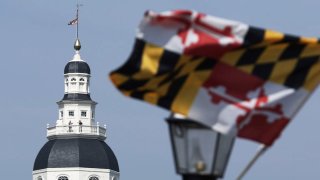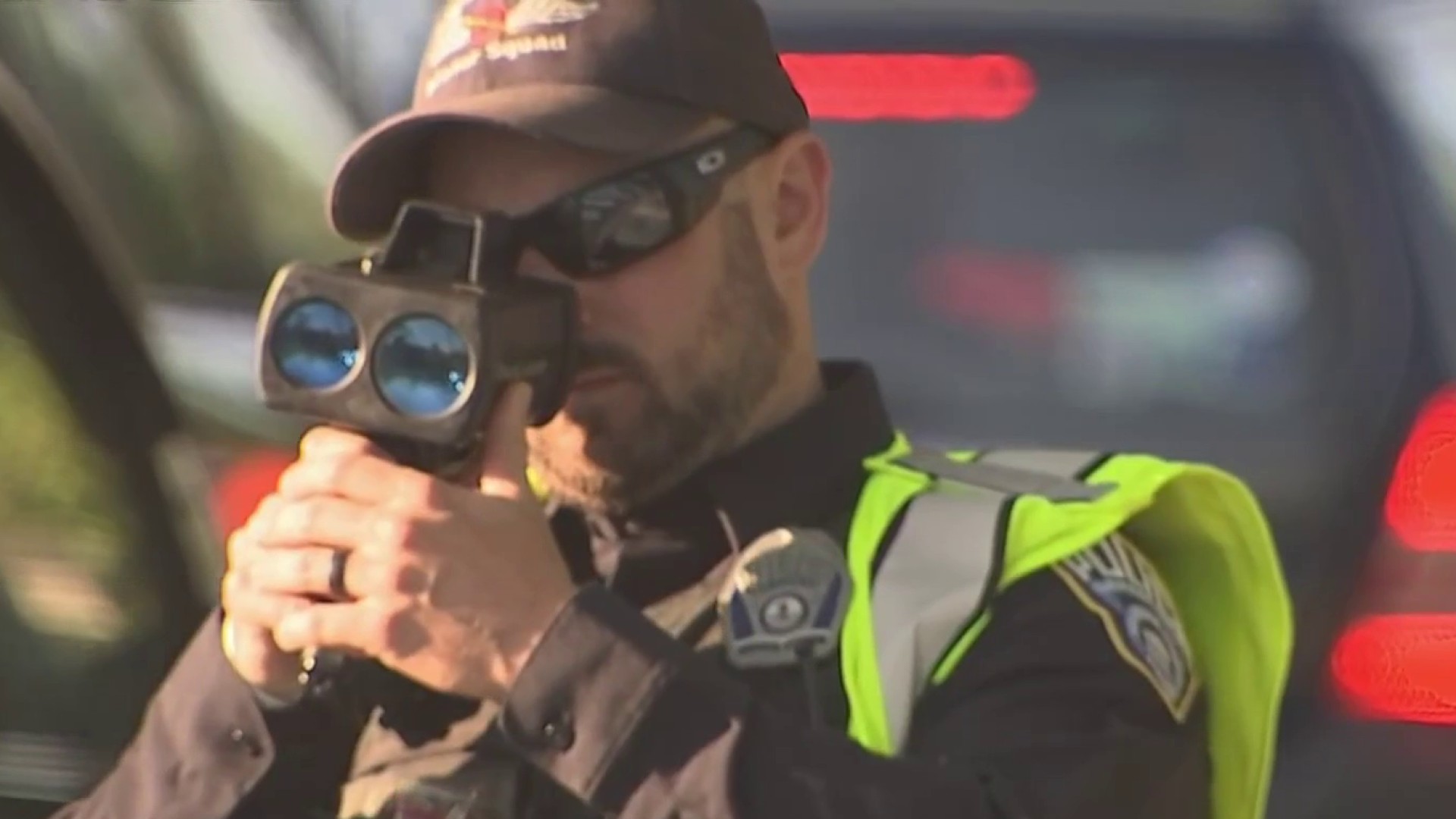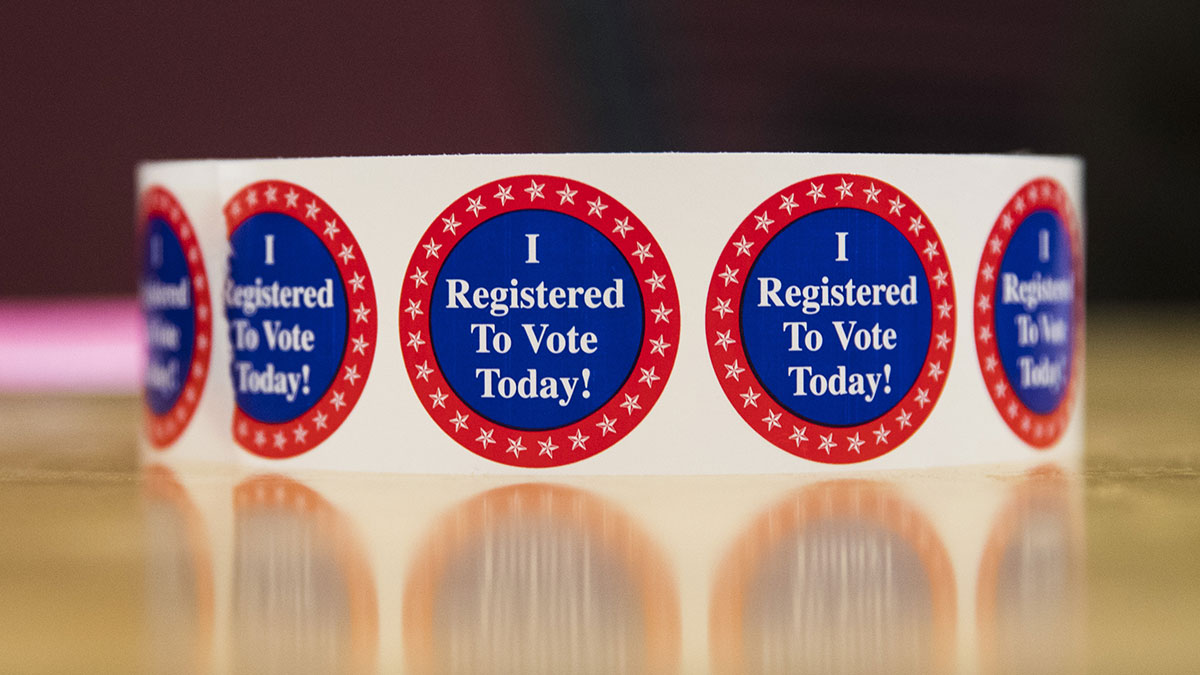
The Maryland General Assembly ended its 90-day legislative session on Monday. Here’s a look at some of the legislation lawmakers passed:
BUDGET
Maryland lawmakers mostly kept Gov. Wes Moore’s $63 billion budget proposal for the next fiscal year intact. They decided to add on some tax and fee increases to raise money for transportation, including a new fee of 75 cents on ride-hailing services and an increase in vehicle registration fees. The new revenues for transportation add up to about $252 million in the next fiscal year, gradually increasing to $336 million in fiscal year 2029. Tobacco tax increases will help generate about $91 million for K-12 education, though that is projected to decline in future years with less tobacco use.
PORT EMPLOYEES
We're making it easier for you to find stories that matter with our new newsletter — The 4Front. Sign up here and get news that is important for you to your inbox.
Lawmakers passed legislation to help Port of Baltimore employees who are out of work because of the Francis Scott Key Bridge collapse and aren’t covered under unemployment insurance while the port is closed or partially closed. The bill authorizes use of the state’s rainy day fund to help them and encourage companies that relocate to other ports to return to Baltimore when it reopens.
COURT PERSONNEL PROTECTION
Maryland judges would be able to shield their personal information online to prevent hostile people from tracking them down, a measure approved in response to the fatal shooting of a judge in his driveway last year.
Local
Washington, D.C., Maryland and Virginia local news, events and information
ABORTION CLINICS SECURITY
Lawmakers approved a measure to create a grant program in the state's health department to help abortion clinics pay for security improvements.
JUVENILE JUSTICE
Lawmakers approved a package of juvenile justice reforms aimed at improving accountability and rehabilitation in response to complaints about increasing crimes like auto theft and handgun violations in parts of the state.
DATA CENTERS
Lawmakers passed the governor's bill to make data center development easier by reducing environmental procedures required by state regulators for backup generators needed for the centers, which house information technology infrastructure.
AFFORDABLE HOUSING
Lawmakers greenlighted the governor's legislation to increase the state’s housing supply by incentivizing construction and removing barriers to development.
PIMLICO REBUILD
A plan to rebuild Baltimore’s storied but antiquated Pimlico Race Course and transfer the track to state control was approved. The plan calls for using $400 million in state bonds to rebuild the home of the second jewel of horse racing’s Triple Crown, the Preakness Stakes.
FIREARMS CIVIL LIABILITY
Lawmakers voted to create standards that the firearm industry must follow to prevent harm in the state, or else face liability for contributing to a public nuisance. The measure would require a member of the firearms industry to “establish and implement certain reasonable controls regarding the sale, manufacture, importation, distribution, marketing, possession and use of certain firearm-related products.”
ARTIFICIAL INTELLIGENCE
Lawmakers approved a measure that aims to prepare Maryland for the rising use of artificial intelligence. It requires the Maryland Department of Information Technology to develop AI policies, mandate AI inventories and codify the governor's executive order on AI, designed to ensure that AI technology is used responsibly.
ONLINE PRIVACY
Lawmakers voted for a measure that limits companies' data collection to give consumers data privacy and security protections. Another measure, called the Maryland Kids Code, puts safeguards in place to restrict data that technology companies can gather on children.
FIGHTING CHILD POVERTY
Lawmakers approved the governor’s proposal to help communities with disproportionately high numbers of children living in poverty. It includes grants to help communities in what the governor described as a bottom-up initiative that puts an emphasis on local input.
GENDER-AFFIRMING TREATMENT
Gender-affirming treatment in Maryland would be protected from criminal and civil actions brought by other states.
FREEDOM TO READ
Public libraries, including public school libraries, would not be able to remove reading materials because of partisan, ideological or religious disapproval.
EQUAL RIGHTS AMENDMENT RESOLUTION
Lawmakers approved a nonbinding resolution affirming the state's support for the Equal Rights Amendment and urging President Joe Biden and Congress to recognize it as the 28th amendment to the U.S. Constitution. Maryland was one of the first states to support it 52 years ago, but it was never ratified, because the deadline passed without having the necessary support from three-fourths of states.
IMMIGRANTS’ HEALTH INSURANCE
Maryland would apply for a federal waiver to enable people to buy health insurance through the state’s health care exchange, regardless of their immigration status.
GUN CENTER
Lawmakers approved the governor's proposal to create a new center to foster a statewide partnership with federal and local agencies to reduce gun violence.
988 CRISIS
The state would create a permanent funding source for the state’s 988 mental health crisis helpline by adding a fee of 25 cents to cell phone bills.
PROTECTING ELECTION WORKERS
The General Assembly passed the governor’s proposal to enable authorities to prosecute people who threaten to harm election officials or their immediate family members, as threats are on the rise across the country.



